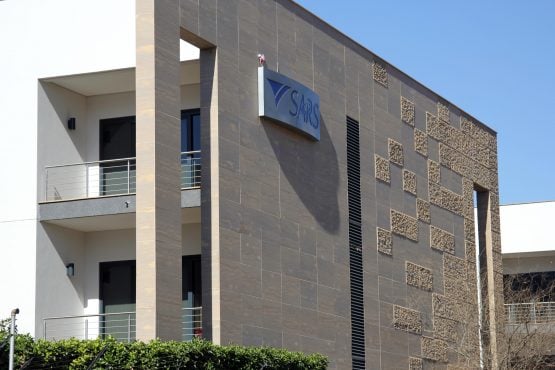The law now allows the revenue service to reduce the amount of interest it must pay a taxpayer in the event of an overpayment.

Picture: Moneyweb
The South African Revenue Service (Sars) is mandated to pay a taxpayer interest if they have overpaid their taxes, and likewise, the taxpayer is mandated to pay Sars interest if Sars has made an overpayment to the taxpayer.
The rationale for the payment of interest is to compensate a party for the economic loss of not having had use of those funds. The interest should run from the date that the party is short of the funds, to the date that the shortfall is paid.
This holds true for when the taxpayer has to pay Sars interest, but not when Sars is mandated to pay the taxpayer interest.
In fact, in a recent amendment to the Tax Administration Act (TAA), Sars has awarded itself a 30-day “interest-free” holiday.
ALSO READ: Good news for provisional tax taxpayers: Sars extends filing deadline
Common law right
There is a common law right to claim interest on a contract, unless interest is waived by agreement between the parties.
If the contract is silent on the rate of interest, the court has held that interest should then be paid at the prescribed rate. (Crookes Brothers Ltd v Regional Land Claims Commission for the Province of Mpumalanga & others (590/2011) [2012] ZASCA 128).
The act prior to amendment
The TAA has provided for the payment of interest as follows:
Where an overpayment is made by:
- Sars to a taxpayer – interest runs from the time the excess amount was paid by Sars (the effective date) until the date that the taxpayer has repaid Sars (Section 187(3)(g)).
- The taxpayer – interest runs from the later of the effective date or the date that the excess was received by Sars, until the date the taxpayer is refunded (Section 188(3)(a)).
At this stage, the taxpayer and Sars were on an equal footing.
The sneaky amendment
The TAA was updated when the proposed amendments were promulgated in January 2021.
Included in the amendments was a new insertion, Section 187(3)(h), which provides that Sars is only required to calculate interest on an overpayment after a 30-day period has elapsed – in effect giving Sars an “interest-free” window.
Taxpayers, however, remain liable to Sars for the interest on Sars’s overpayment from the date of payment.
Bowmans senior associate Julia Choate says the insertion “appears to skew the status quo in Sars’s favour”.
“Although we have yet to see how Sars will implement this amendment in practice,” she adds.
ALSO READ: Sars finally has a plan to deal with discontinued Flash support
‘Rationale’
Choate explains that the “rationale for this amendment is to provide Sars with enough time to review and correctly classify any overpayments, so that if the taxpayer has existing tax debts, the ‘excess’ amount can be set off, so that Sars does not calculate and pay interest to taxpayers who simultaneously owe Sars outstanding tax and interest”.
But surely Sars should not be given an interest-free period – at the expense of a taxpayer who suffers the loss of interest – to do work that it is mandated to do in administering the tax system?
Choate cautions that “taxpayers will need to be considerably more vigilant when submitting returns and making payment to Sars, to ensure that they are not ‘penalised’ for accidentally paying Sars too much money”.
Ongoing problems in paying refunds
There have been ongoing problems in the payment of refunds.
The full payment of interest on a delayed refund should be the least a taxpayer can expect.
To give Sars a 30-day interest-free period to carry out various crosschecks would make most taxpayers choke.
In a judgment handed down in November 2020, taxpayer Rappa Resources had to urgently request a court order for Sars to pay value-added tax (Vat) refunds.
The taxpayer also requested an order that Sars complete a Vat audit that was instituted in March 2020. Sars stopped the payment of Rappa’s Vat refunds while the audit was taking place. But there didn’t appear to be a finishing line.
ALSO READ: Rising debt and taxes
The total amount of refunds withheld from February to June 2020 approximated R1.6 billion.
Sars had “reason to believe that Rappa is either directly or indirectly involved in unlawful activities”, and wanted to hold the proceedings in camera.
The court found that Sars “disclosed the information and then sought to protect its confidentiality after disclosing it”.
The court referred to this as Sars’s “slapdash approach to the confidentiality issue”.
Sars argued that “no decision had been made to withhold the refunds” as refunds will automatically be held when an audit commences. Hence, the “decision” to withhold the refunds was not reviewable!
The court held that this was “patently inconsistent with both the TAA and with Sars’s practice”.
The court directed Sars:
- To pay to Rappa the refunds for which Rappa could provide acceptable security;
- To complete “the March audit”; and
- To pay the costs of the court application, including the costs of two counsel.
The 30-day interest-free holiday is likely to cause tension between Sars and taxpayers, particularly where Sars is dragging its feet in completing an audit, or in ascertaining that the refund amount is correct.
This article was republished from Moneyweb with permission
For more news your way, download The Citizen’s app for iOS and Android.





